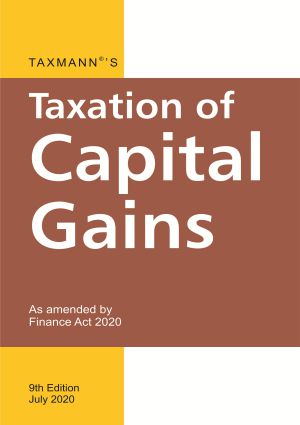Computation of Capital Gains – Long Term Capital Gains & Short Term Capital Gains
- Blog|Income Tax|
- 3 Min Read
- By Taxmann
- |
- Last Updated on 15 December, 2025
Computation of Capital Gains:
|
Particulars |
Rs. |
|
Full value of consideration Less: a) Expenditure incurred wholly and exclusively in connection with transfer b) Cost of acquisition* c) Cost of improvement*
Less: Exemption under Sections 54 to 54GB (if any) |
xxx
(xxx)
(xxx) (xxx)
(xxx) |
|
Short Term/ Long Term Capital Gain or Loss |
xxx |
* Benefit of indexation shall also be allowed with respect to cost of acquisition and improvement while calculating Long term capital gains.
Full Value of Consideration:
Full value of consideration is the amount in lieu of transfer of such an asset can be received in cash or in kind. Generally, if the consideration is received in kind then its fair market price to be taken as full value consideration. However, this is not always applicable and one may require to calculate the full value of consideration in alternate ways that those are prevalent.
Expenditure Incurred in Connection with transfer:
One can deduct the amount that he may have encountered as an expenditure in connection with transfer of a capital asset while he is calculating his capital gains. Some of such expenditures are brokerage or commission paid to a third party, stamp duty paid while making the transfer, any kind of registration fee that you may have encountered, any kind of travelling fees or legal expenses in relation to the transfer of capital assets. However, if this expenditure is done in respect to any of the money that you have paid to the Securities Transaction Tax then this amount cannot be deducted from your capital gains while you are calculating your capital gains.
Cost of Acquisition of Capital Asset:
The cost of acquiring a capital asset can be deducted from your capital gains while you are calculating the due tax. As per law the assessee can deduct all kind of expenses that he has encountered while acquiring it other than the expenditure in connection of its transfer, which he might have encountered while retaining or maintaining that capital asset. If the assessee have acquired the capital asset through a purchase then, the purchase price of that assets is considered to be his cost of acquisition.
Also Read:
Disclaimer: The content/information published on the website is only for general information of the user and shall not be construed as legal advice. While the Taxmann has exercised reasonable efforts to ensure the veracity of information/content published, Taxmann shall be under no liability in any manner whatsoever for incorrect information, if any.

Taxmann Publications has a dedicated in-house Research & Editorial Team. This team consists of a team of Chartered Accountants, Company Secretaries, and Lawyers. This team works under the guidance and supervision of editor-in-chief Mr Rakesh Bhargava.
The Research and Editorial Team is responsible for developing reliable and accurate content for the readers. The team follows the six-sigma approach to achieve the benchmark of zero error in its publications and research platforms. The team ensures that the following publication guidelines are thoroughly followed while developing the content:
- The statutory material is obtained only from the authorized and reliable sources
- All the latest developments in the judicial and legislative fields are covered
- Prepare the analytical write-ups on current, controversial, and important issues to help the readers to understand the concept and its implications
- Every content published by Taxmann is complete, accurate and lucid
- All evidence-based statements are supported with proper reference to Section, Circular No., Notification No. or citations
- The golden rules of grammar, style and consistency are thoroughly followed
- Font and size that’s easy to read and remain consistent across all imprint and digital publications are applied





 CA | CS | CMA
CA | CS | CMA

Comments are closed.